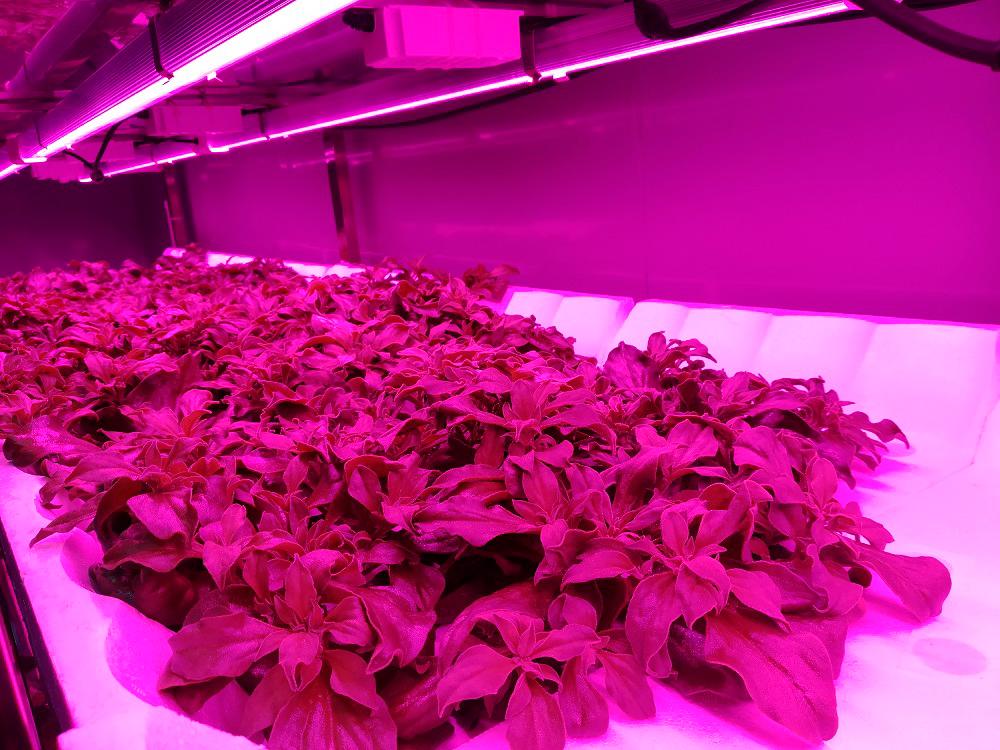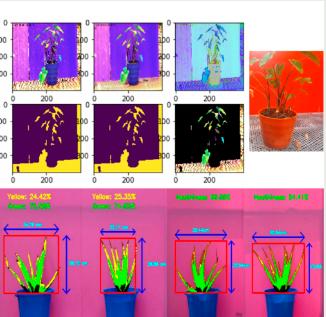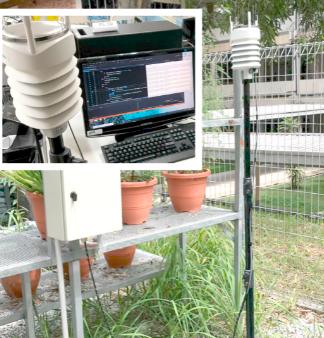The fourth Industrial Revolution (“IR4.0”) is making sweeping changes to every economic sector, leveraging technology to increase productivity and promote innovation. In agriculture, advanced technology is being used to ensure better crop yields while preserving environmental sustainability known as Agriculture 4.0.
At Tunku Abdul Rahman University College (‘TAR UC’), several Agriculture 4.0 research projects are currently being carried out by the Faculty of Applied Sciences (‘FOAS’) such as Optimisation of Crop Growth in Farm Box as well as Optimisation of Nutrient Media in Soilless Culture for Ginger Growth.
The main objectives of these projects are to help industries solve common agriculture problems and to assist in the decision-making process by providing sound data. In addition, FOAS students are also involved in these research projects and this allows students to work on solving real industrial problems even before they graduate.
The research project on Optimisation of Crop Growth in Farm Box is to study the effectiveness of farm box which is a modern environmental control system for agriculture. The other project on Optimisation of Nutrient Media in Soilless Culture for Ginger Growth is to study the best nutrient formula to promote ginger growth without soil but using soilless media.
Choo Jia Min, a TAR UC Bachelor of Science (Hons) in Bioscience with Chemistry graduate, was involved in the abovementioned two Agriculture 4.0 research projects at TAR UC. “Apart from what I studied in my degree programme, the experience of being part of these research projects was tremendously educational for me. I have learnt how to design a project and have experienced how proper scientific research is conducted especially in analysing the results based on the data collected. I also count myself extremely fortunate to gain experience in using technology to help with research projects. I worked closely with a number of students from the Faculty of Computing and Information Technology (‘FOCS’) in TAR UC to share inputs and solutions on the types of technology needed to generate specific data and how to improvise the overall research projects using technology. The experience was enriching and I especially appreciate the discussions and brainstorming sessions we had to find solutions to the challenges we faced,” Jia Min said.
Yap Kah Sing who also graduated from TAR UC with a Bachelor of Science (Hons) in Bioscience with Chemistry, was involved in the project on Optimisation of Nutrient Media in Soilless Culture for Ginger Growth. “This research project is the perfect example of a successful science and technology project. With what I learned in my degree programme, I contributed to the scientific aspect of the project and the technology part was handled by the team from FOCS. I learnt a lot through the many discussions we had where we brought to the table each of our expertise and worked on how we could use technology to get the specific scientific data we needed. Among the interesting technology tools that were used included Computer Vision which uses the latest Machine Learning model and Image Processing to study and analyse the plants’ health level in real-time. We also used wireless communication such as WiFi, Low Power Wide Area Network (‘LPWAN’) and Long Range Radio (‘LORA’) technology and protocols to enable wide coverage for the sensing devices. There is also the Weather Station which collects data on the real-time weather and environmental changes throughout the life cycles of the plants. The experience is very educational and it is very exciting to see first-hand how technology can be used so well for scientific research,” Kah Sing detailed.
Dr Tan Hui Yin, Deputy Dean of FOAS and Research Centre Leader of the Centre for BioScience and Food Science Research, further explained how the Agriculture 4.0 research projects would benefit the students. “Involving students in industry-based research projects is one way we enrich their learning experience beyond the classroom where they gain valuable experience and exposure in working to solve industrial problems. Agriculture 4.0 projects are multidisciplinary and involve the integration of precision agriculture, the internet of things, machine vision, AI and automation just to name a few. This would require students from different backgrounds and specialisations to work together as a team to solve industrial problems. This will enable students from different fields of study to learn from each other and exchange knowledge among themselves. This is TAR UC’s unique way of allowing students to learn beyond education to help students develop important skills and competencies that would be helpful in their careers and life,” she explained.
To find out more about the TAR UC’s applied science programmes, intakes or other general enquiries about TAR UC, please visit www.tarc.edu.my. Attractive scholarships are also available at TAR UC on the basis of academic merit and sibling discount for qualified students.















